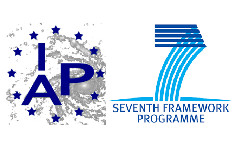
About us
Optical Infrared Coordination Network for Astronomy (OPTICON) is an EU funded research infrastructure project that has been running for more than a decade (coordinator Prof. Gerry Gilmore from University of Cambridge). OPTICON is divided into three aspects: joint research activities, networking, and trans-national access. The four-year Horizon-2020 funding started in January 2017, and it involves 32 partners from all over Europe. University of Copenhagen is in charge of the main educational component of the OPTICON grant; the work-package 12 'Enhancing community skills, Integrating communities' is lead by Heidi Korhonen from Dark Cosmology Centre at Niels Bohr Institute. This work package has previously been run by Michel Dennefeld (IAP, Paris), and information on the earlier programme can be found from the IAP site.
NEON Observing Schools (NEON=Network of European Observatories in the North) are the main OPTICON educational event organised yearly by workpackage 12. These hands-on schools are hosted by observatories with 1-2 metre telescopes and modern instrumentation - all are facilities used by professional astronomers in their research. During the observing school the students will conduct a research programme in small groups (typically 4 students) under the supervision of an experienced astronomer (“tutor”). The process will include preparation of the observations, set-up of the instruments, observations, data reduction and presentation of the scientific results, all within a two week school.
Other schools related to observational astronomy are also organised by OPTICON workpackage 12. The scope of these schools changes yearly, and during the four-year duration of the Horizon-2020 grant several schools are planned, among them are an instrumentation school, multi-wavelength/multi-messenger school, and 'Hot Topics' conferences. Hot Topics events present the top-level existing and future facilities to help astronomers in new EU (or accessing) countries to raise their interest in the Trans-National Access programme, and attract new researchers into leading topics in astrophysics.
WP 12 Board Members
- Tanyu Bonev, Institute of Astronomy and National Astronomical Observatory, Bulgarian Academy of Sciences, Bulgaria
- Michel Dennefeld, Institut d'Astrophysique de Paris, France
- Roland Gredel, Max-Planck-Institut fuer Astronomie, Heidelberg, Germany
- Petr Kabath, Astronomical Institute ASCR, Ondrejov, Czech Republic
- Heidi Korhonen, DARK, Niels Bohr Institute, University of Copenhagen, Denmark (chair)
- Elina Lindfors, Tuorla Observatory, University of Turku, Finland
- Alessandro Pizzella, Department of Physics and Astronomy, University of Padova, Italy
- Martin Ward, Institute of Advanced Study, Durham University, UK
And our OPTICON contact: Gudrun Pebody, Institute of Astronomy, University of Cambridge, UK

